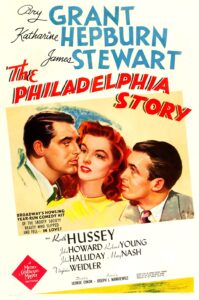1964 Farmingdale, New York
Jay Gitlin
Born in 1949
Farmingdale, New York
Interviewed on February 7, 2023
by Olivia Cevasco

So first of all, I grew up when there were movies on TV, but everybody still went to the theater. I was raised in North Massapequa, which was in suburban Long Island, but since I went to school in Farmingdale, I gravitated to the Farmingdale village. So usually if I went to the theater, and I didn’t go that often though I went sometimes, I’d go to Farmingdale—and it was an old theater. God, I don’t know when it was built, but probably in the 20s, and it was old, you know, very vertical. And I think it cost less money on Saturday mornings—it was a kid’s matinee. So by the time I was in junior high school, it was like a “hangout age,” and you were old enough to go to the theater by yourself. I remember not only buying popcorn, I remember people throwing popcorn, you know, just to be rowdy. I wouldn’t do stuff like that. But people did it.


Farmingdale Theater. Cinema Treasures.
I joined the American Federation of Musicians at the age of 12, so my story is going to be a little different from the others. I joined at 12, and I became a young professional very quickly and began playing in the backup band for Neil Sedaka. Alright, so I was already a little bit on the inside of the entertainment world. Live entertainment, as a musician, was always more interesting to me than movies.
Now, if we’re talking about what movies I remember, my mother loved the movies. And although she worked for a while in department stores, oftentimes she’d be home, and there was something called the movie matinee, and it was always an old classic movie from the 30s and 40s. My mother’s favorite movie was Night and Day, which was the original Cole Porter story that came out in 1946. She wanted me to be the Cole Porter played by Cary Grant. She wanted me to go to Yale. I was the Cary Grant son and my younger brother—who’s 12 years younger—he was Clark Gable. So alright, that’s what she thought. Okay, so I knew that the expectation was that I should be a little bit like Cary Grant.
That said, I liked The Philadelphia Story, 1940, Cary Grant, Katharine Hepburn and Jimmy Stewart. I love that movie. I could watch it another hundred times. And I’ll go back and tell you why I loved it…
Cary Grant is the old boyfriend, and he’s come because Katharine Hepburn is about to get married to Jimmy Stewart. When he shows up, you just know that he’s ultimately going to win her back because he’s smooth. And Jimmy Stewart is a nice guy, but he doesn’t quite get her, you know, so it’s a great movie. I liked all of Grant’s movies because they’re witty, they’re clever. They’re chic and they’re snappy. They’re elegant, dressy and conversational. His movies are all about articulating a posh, sophisticated atmosphere. And it’s like, yeah, sure, why wouldn’t I want to be like Cary Grant? You know? He’s the one who gets the girls, and he’s charming and witty. But what I’m saying here is: he was debonair. You know, he was suave. He was fast. He was glib. I like all that.
When I came to Yale as a history major [editorial note: Professor Gitlin received his BA, MM, and PhD degrees at Yale], we’d watch movies, mostly from French filmmakers, you know, Godard, Renoir, Truffaut, and we went to screenings for dates, too. The Yale Film Society and the Yale Law School Film Society had a lot of screenings—I went to all of the classic films, and we’d look for lines to use at mixers.
Much later, I was teaching a class called “Social Life and Popular Music in America,” which was a big lecture class [editorial note: Professor Gitlin is currently a Senior Lecturer in Yale’s History Department and an Associate Director of the Howard R. Lamar Center for the Study of Frontiers & Borders]. I brought my students down to the Stamford Palace Theatre, and it was billed as an evening with Cary Grant. And so I brought my class and they asked him questions. At first, they showed a montage of his movies for about 45 minutes. And then he stood there and answered questions. So I got to meet Cary Grant. And one of the questions—which I’m sure came from one of my students—was like, “What was it like to kiss Mae West?” Because one of his famous lines in—I think it may have been his first movie appearance—was with Mae West, where she said, you know, “Want to come up and see me sometime?” That was semi-scandalous, you know—it was during The Hays Code. The line was like, ‘Come on up to my room.’ Look up the exact line because it was a great line [editorial note: I did look up the line, Professor. It’s “Come up and see me sometime” from the 1933 film “She Done Him Wrong”]. So one of my students asked him “what was it like, you know, kissing Mae West on screen?” He said, “I could not tell you. It’s like I was just worried and I had a drink in my hand. There was a boom mic right over my head. I have to stand on my mark.” And when you do theater stuff, you understand how this works.
Okay, so circling back to The Philadelphia Story and Cary Grant, I want to tell you that if the movies gave me anything, they gave me this image: I wanted to be like Cary Grant. I wanted to be a smooth talker. I wanted to tell good stories, tell the occasional joke. And I feel like, whatever pathway I’ve followed, I think I’ve kind of done a little bit of that.
